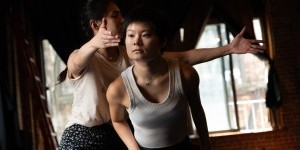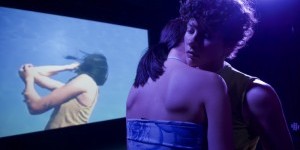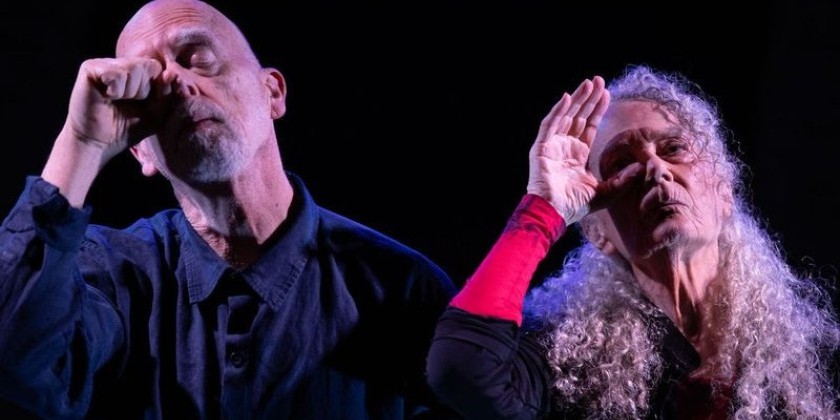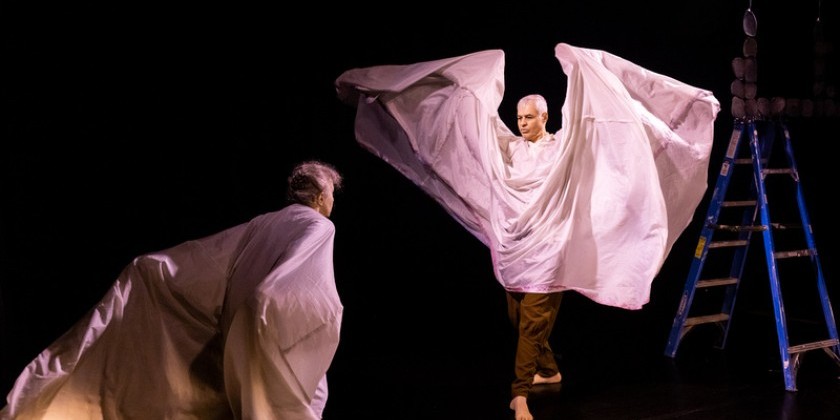IMPRESSIONS: The Moving Architects in "O my soul" at Arts on Site
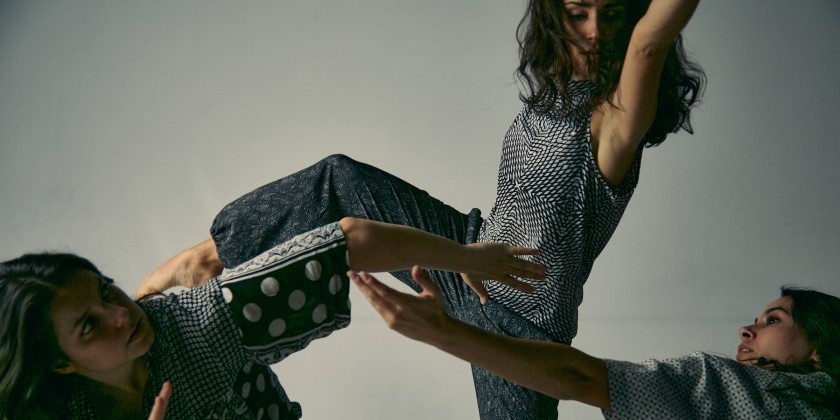
Choreography: Erin Carlisle Norton in collaboration with the dancers
Film Editing: Erin Carlisle Norton
Dancers: Mariah Anton-Arters, Hannah Liu Anderson, Emily Cicio, Kelly Gurerro, Erin Carlisle Norton, Barbara Whitehill
Musicians: Grace Liu Anderson, Hannah Anderson
Music: Michael Wall, Frank Bretschneider and Taylor Deupree, What Wonderous Love is This (traditional hymn), original score by Grace Liu Anderson
Collaged Fabric: Gwen Charles
Date: May 3, 2024
Gorgeous patchwork quilts carpet the stage at Arts on Site. Quilting, an art form practiced for centuries, has come to represent connections, family, stability, and storytelling. The quilts in O my soul, sewn from scraps of fabric in plaids, stripes, polka dots, and florals by artist Gwen Charles, serve as both partners and props in The Moving Architects' evening length piece, each scrap of material representing a piece of life.

Preceding the stage version of O my soul is Artistic Director Erin Carlisle Norton's 2022 dance film of the same name. Amid a shifting landscape of grassy hills and gravel roads, Norton dances, carving the air with her arms as she curls and unfurls her spine. Her movements are hyper digitized and layered at a frenetic pace in contrast to her natural surroundings. Using her body as the constant and speed as the variable, O my soul marks Norton’s relationship to the passing of time.
On stage, dancers Emily Cicio and Kelly Gurrero pick up where Norton left off on screen, making a series of sculptural shapes at varying speeds that evolve into a conversational duet. One dancer moves while the other is still. Movement motifs from the film continue. Wildly swinging arms and reverberating torsos imply frustration. Moments of stillness evoke serenity. Titled Disconnection, Cicio and Gurerro move at the same time, yet not as one. The music of Frank Bretschneider and Taylor Deupree is a driving pulse, but Cicio and Gurrero don’t dance to it. Instead, they adhere to an internal rhythm unknown to us, discord apparent.
O my soul is set in a series of eleven vignettes titled with varying emotional states — disquiet, restlessness, belonging, acceptance. However, some sections lack the power to fully embody those emotions. In Shock and Surprise, Mariah Anton-Arters is propelled against her will across the stage by a large bungee cord attached at the waists of Cicero and Gurrero. She fights against its momentum, but to no avail. While the sense of being out of control aligns with being in a state of shock, I was not convinced Anton-Arters was actually reeling. Further development using the elastic cord to its full potential is needed to give this section power.
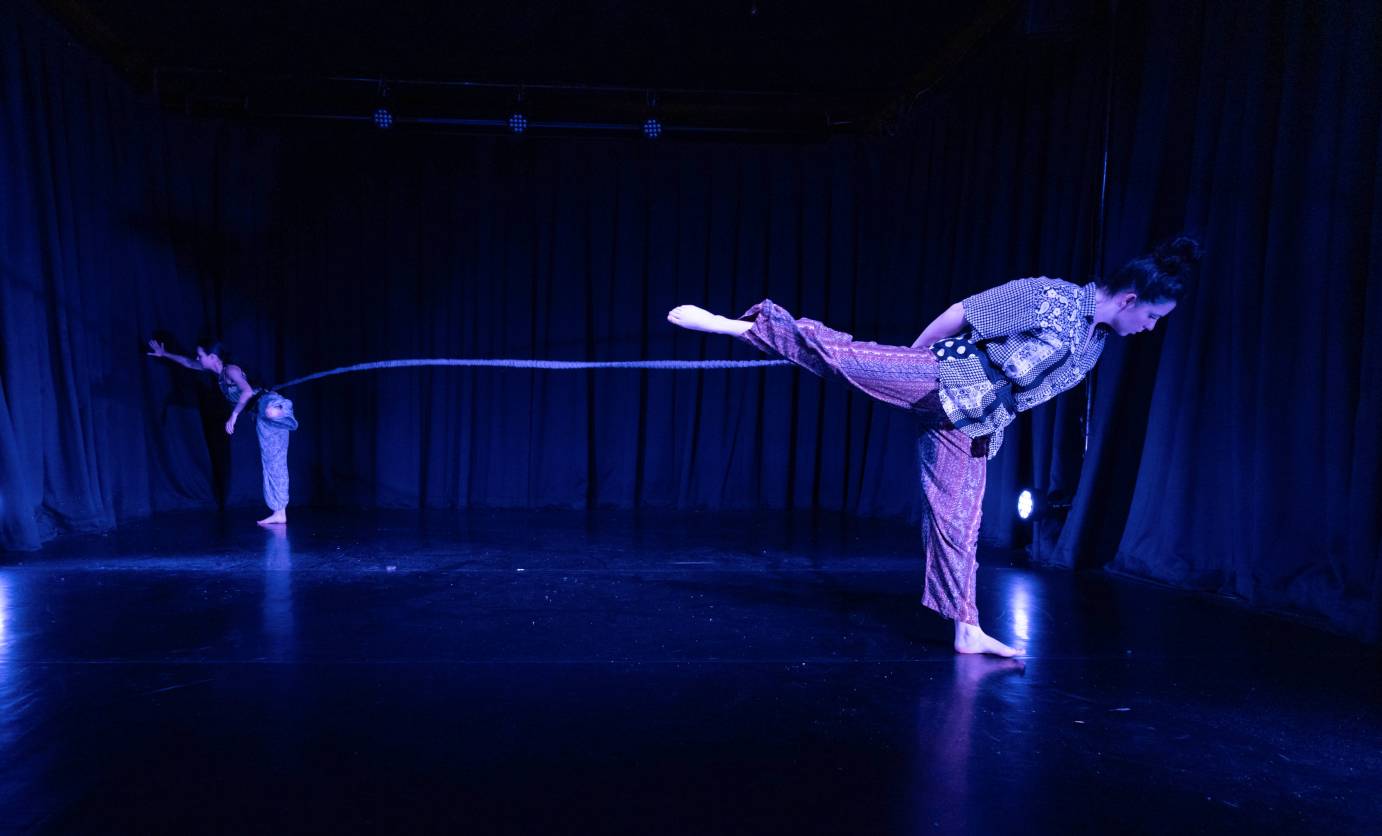
The most successful portions of O my soul, aside from Disconnection, are Disappointment, a solo for Norton performed to live violin music by Grace Liu Anderson who is also a dancer in the piece, and Clarity. In Disappointment, Norton repeatedly wraps and untangles herself in a quilt. Anderson mimics her on the violin, its sound becoming distorted when Norton is restrained and harmonious when she is free. As Norton sinks and rises from the floor, her movements weighted and solemn, a sense of loss pervades and her quilt becomes an instrument of comfort.
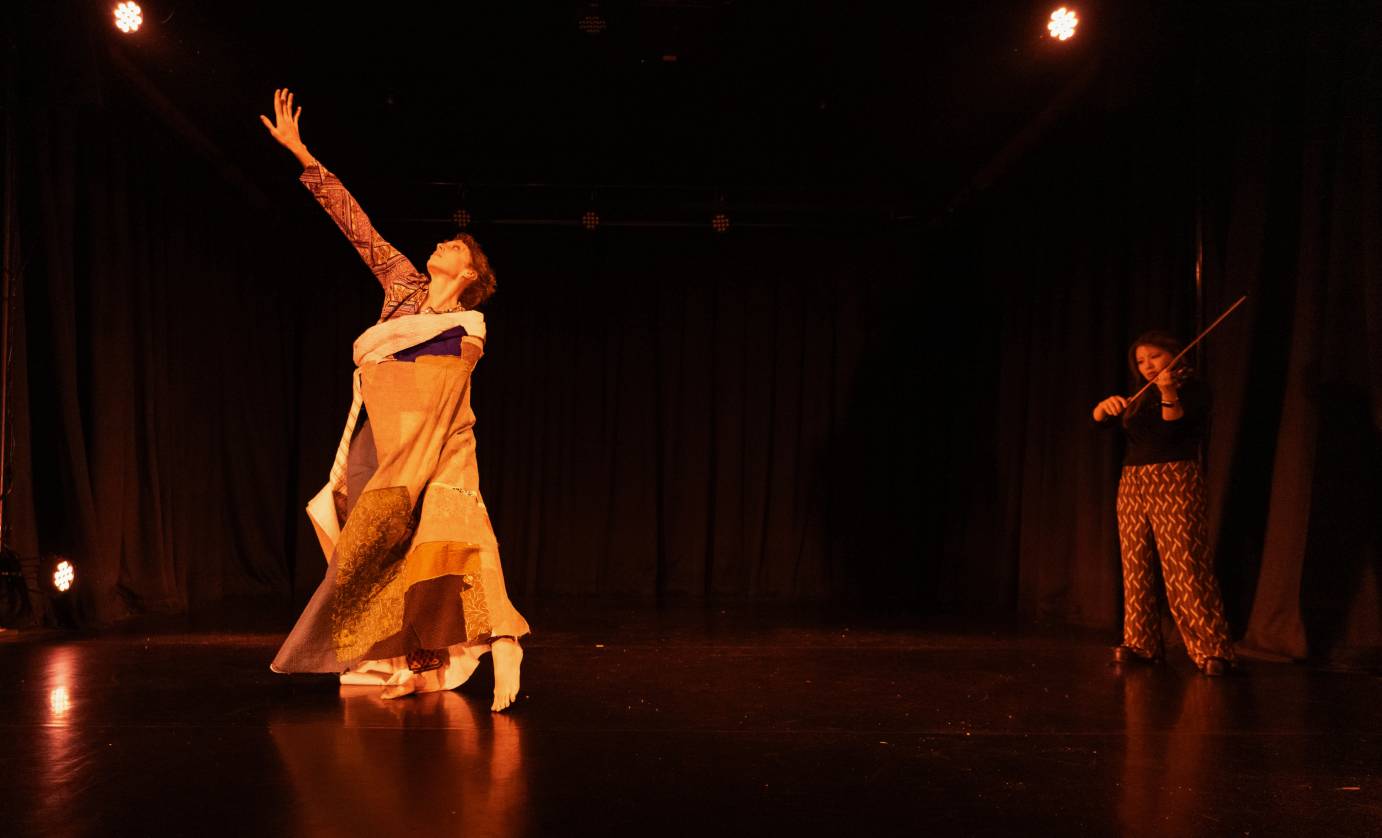
Norton does not employ the fabric in every section, but the costumes — heavily patterned, mismatched tops and pants — allow each dancer to become living pieces of the quilt. In Clarity, a trio for Anton-Artes, Cicio and Gurerro, the three dancers revisit previous solo choreography. Done simultaneously, the women make space for each other to exist as individuals within a cohesive group, their movements singular yet harmonious.
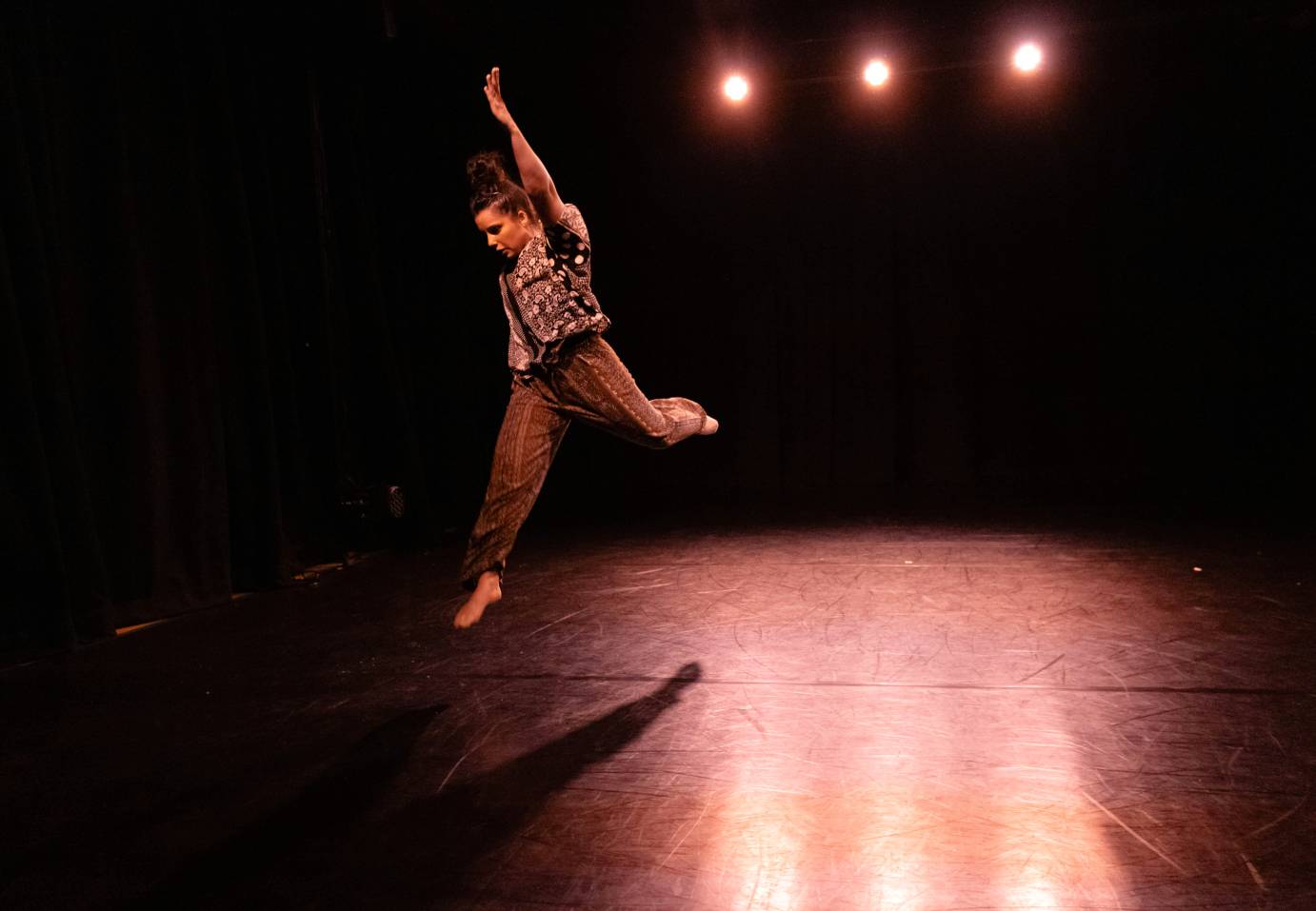
Photo courtesy of The Moving Architects
O my soul presents as a patchwork evening, but perhaps that is the point. Our experience of time’s passing is often nonlinear and its accompanying emotions can be confounding. While Norton has more excavation to do in the stage version, O my soul is a passage of time worth taking.





